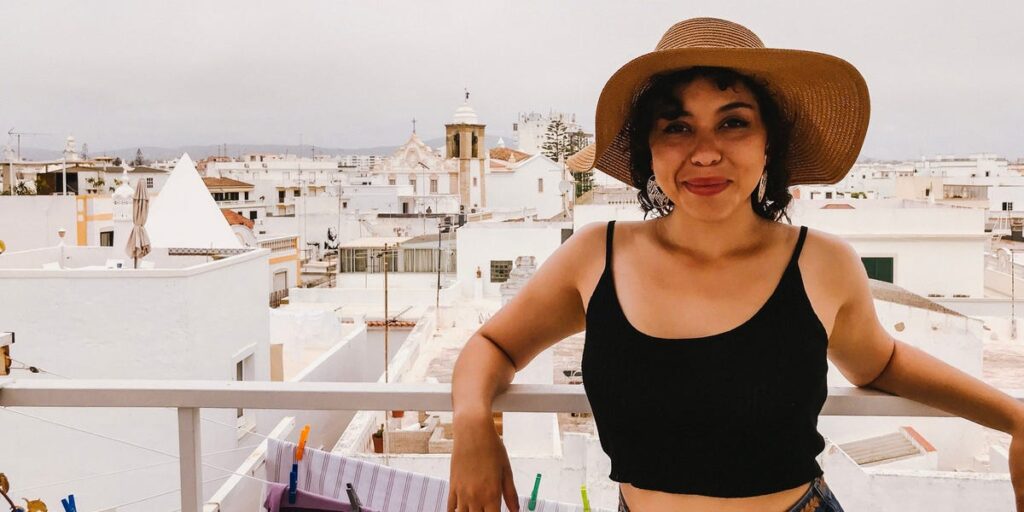Living abroad had always been a dream of mine, so at 23 years old, I moved to Budapest with just a few thousand dollars saved up.
I only intended to stay for 12 months, but that plan changed: I spent seven years living the expat life in Hungary and traveling through Europe.
When I returned to the United States earlier this year, I was absolutely rich in experiences, but financially unstable. Though I don’t regret my time abroad, hindsight is 20/20.
There are a few things I wish I’d done differently to better set myself up for success.
I should’ve taken the time to research and compare programs instead of taking my first offer
I was so excited to move to Budapest that I accepted the first job offer that came my way (teaching English at an elementary school) instead of fully researching all my options.
My annual teacher’s salary roughly equated to less than $8,000. Since I could dip into my existing savings and only planned to stay for one year, I figured a low salary was the price to pay for adventure.
Now, I know I should’ve just been patient and spent more time looking for other teaching programs that paid more to begin with.
A travel-rewards card would’ve been an asset
Though I had credit cards, none of them were especially great for earning travel rewards.
There are so many cards out there that not only allow you to earn cash back when you book flights or hotels, but also get you discounts and other perks. I wish I’d gotten one years ago, so it would’ve been easier for me to travel on a budget and save on flights.
By the end of my time in Budapest, I’d crisscrossed Europe many times over, and probably could’ve racked up points that would’ve at least helped cover my long-haul flights home.
I should’ve balanced my budget with my travel bucket list
“Will I ever get this chance again?” became one of my refrains throughout my years abroad, and I kept pushing the limits of my budget to make room for more experiences.
So many things seemed too good to pass up, from attending a ball in Vienna to working remotely in Lisbon to skiing in the French Alps.
Though I don’t regret any of those experiences — many of them were childhood dreams — I wish I’d balanced my budget by planning low-spend or no-spend periods after big splurges.
When I began earning more, I stopped tracking small expenses and fell victim to ‘lifestyle creep’
When the COVID-19 pandemic cut my third year of teaching short, I had to pivot. A local business hired me as a content manager, and from there, I built my portfolio enough to land a remote job with an American marketing agency.
My salary increased significantly, and looking back, this is when my “lifestyle creep” started.
It was the smaller-scale things, like no longer paying attention to what I spent on groceries or tracking how much I went out to eat, that built bad financial habits.
Honestly, as someone who didn’t grow up with a lot of money, I was seduced by the feeling that I could buy whatever I wanted whenever I wanted (both because of my higher salary and credit cards). I felt like putting a definite budget in place would’ve shattered the illusion.
But really, a budget would have saved me from unnecessary debt, and I wish I’d addressed my emotions around spending.
It wasn’t until my feature with CNBC — one that required me to go through my finances with a fine-toothed comb — that I confronted how and where I’d been overextending.
Overall, I’ve realized that it’s important to approach finances with curiosity — not fear
After seven years of living in Budapest, I spent my last bit of savings on a one-way plane ticket home.
I’m glad I spent my 20s abroad, but I’ve had to put in a lot of work to get my finances to a better place.
These days, I’ve been focused on rebuilding my savings and paying off the credit-card debt I accumulated by moving home, cutting expenses, and getting a part-time job.
Still, I give myself grace. The truth is, I still would’ve been intimidated by my finances (and perhaps in a similar position) even if I’d spent the last decade in the US.
I see now that knowledge — about your options, your spending, and your financial tools — is power, and I wish I’d faced this head-on and taken responsibility for my financial literacy sooner.
Read the full article here


